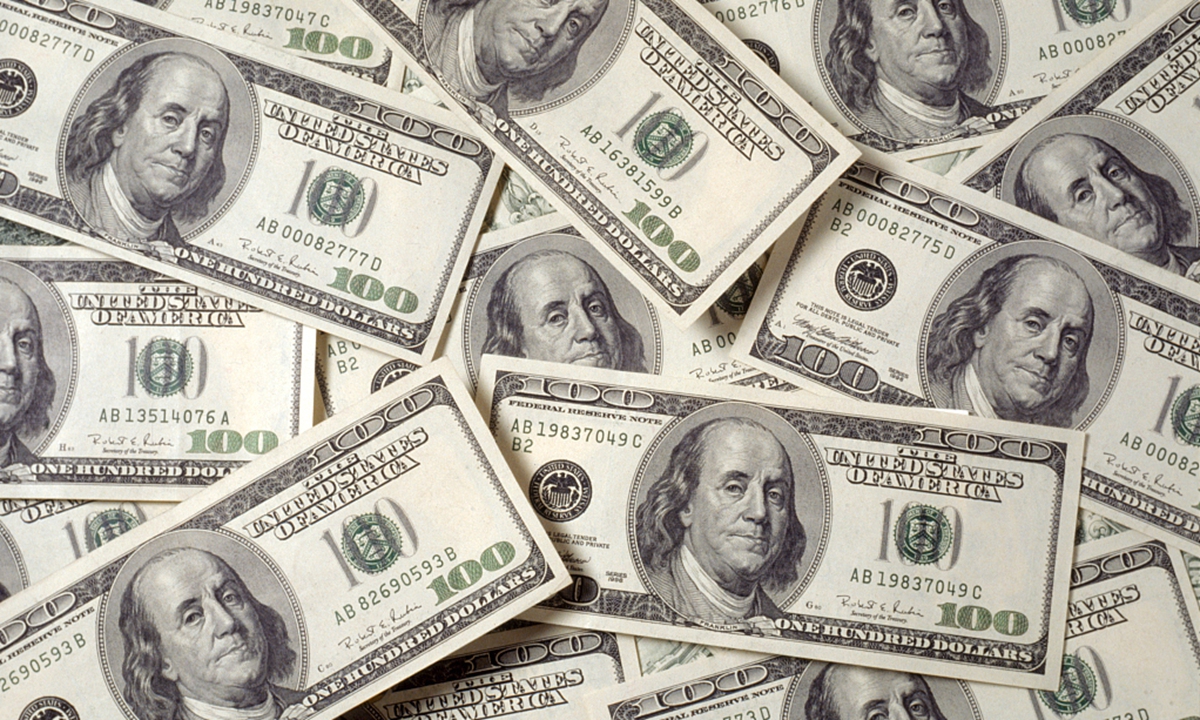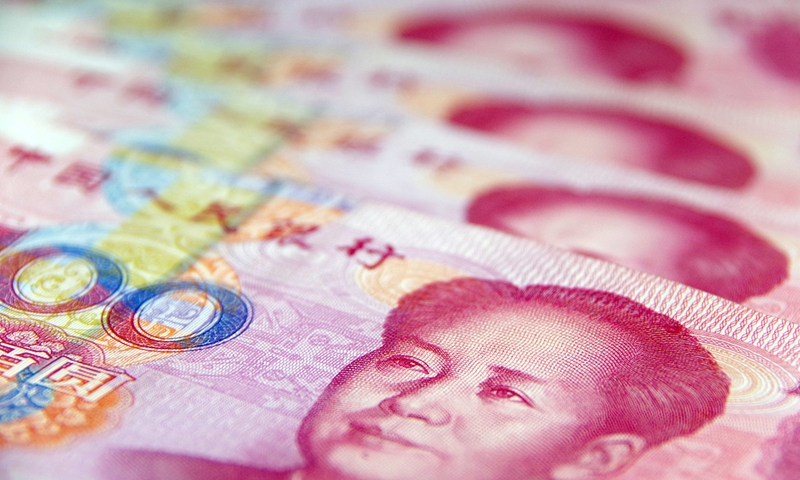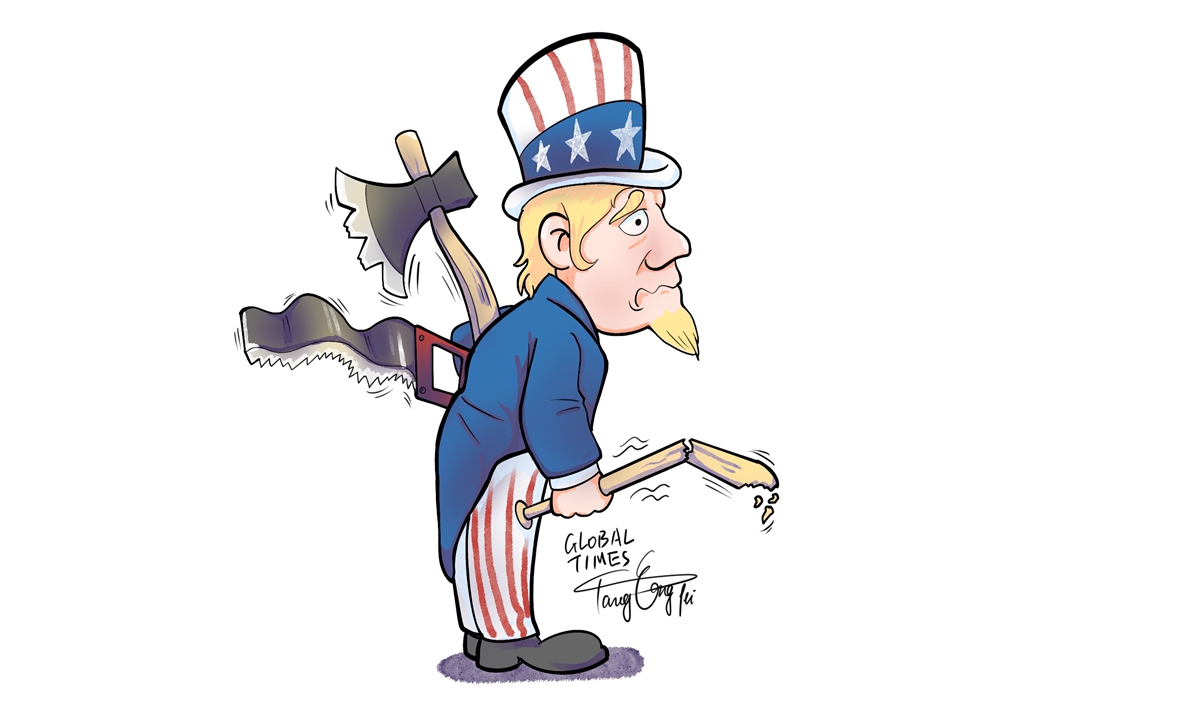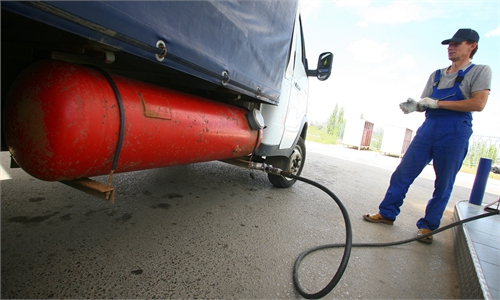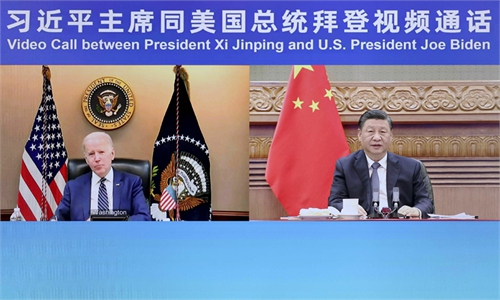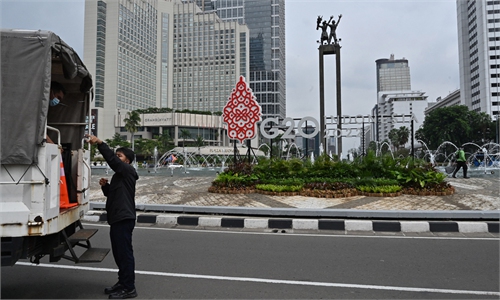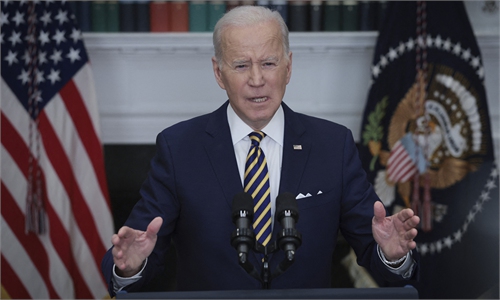Russia moves to demand gas payments in ruble, countering financial sanctions by the West
More countries expected to explore trade payment in a variety of currencies

Photo: VCG
As Russia moves to seek payment in rubles for natural gas sold to "unfriendly" countries, the world's major energy provider is kicking the ball to the EU as the latter is heavily reliant on Russia's supplies for its heating and power generation, escalating the game with the West.
The move, intended to counter the financial sanctions by the US-led West, is expected to lift the value of the Russian currency, which has plunged amid the Russia-Ukraine conflict, experts said. If the EU does not agree with the payment change from euros to rubles, it is likely to aggravate the continent's energy supply crunch, they added.
"Russia will continue to supply natural gas in the agreed-to volumes and for the agreed-on prices as indicated in the existing contracts. These changes will affect only the transaction currency, which will now be Russian rubles," Russian President Vladimir Putin said during a televised meeting on Wednesday with top government ministers, according to a release from the Kremlin.
Putin said the government and central bank had one week to come up with a solution on moving operations into the Russian currency and that Gazprom, the Russian energy giant, would be ordered to make the corresponding changes to their contracts.
The Russian government on March 7 designated a list of 48 states deemed to be "unfriendly." They included the US, all EU member countries, Japan, Switzerland and Norway.
Gazprom said on Wednesday that it was continuing to supply natural gas to Europe via Ukraine in line with requests from European consumers, Reuters reported.
Putin's move sent a clear signal that if EU countries want to continue buying Russian gas, they need to shift to payment in rubles. This will act as an effective measure to counter the West's financial sanctions imposed on Moscow, Cui Hongjian, director of the Department of European Studies at the China Institute of International Studies, told the Global Times on Thursday.
The value of the ruble surged after the announcement. The currency briefly rose more than 8 percent against the US dollar, with the ruble rising 5.6 percent intraday on the Moscow Interbank Currency Exchange (MICEX), the biggest gain since 2014.
The current splits among EU countries over sanctions on Russia's energy sector will be aggravated by Putin's fresh move, according to Cui.
Unlike the US and the UK, many EU countries refused to sanction Russia's energy supplies, which contribute as much as 40 percent of Europe's natural gas needs. The US has imposed an embargo on Russia's energy.
The new rules mean that certain terms in the contracts between Russia and its European customers will need to be renegotiated. Any supply disruptions will exacerbate Europe's energy crisis, experts said.
As a result, European gas prices surged 34 percent on Wednesday.
"European countries may not be able to afford the supply cut of Russian energy at the moment if they stick to payments in euros," Pan Helin, joint director of Research Center for Digital Economics and Financial Innovation affiliated with Zhejiang University's International Business School, told the Global Times on Thursday.
US shale oil is subject to supply chain disorder caused by the pandemic and labor shortages, while the Middle Eastern countries' newly increased production is not ideal, so there are few choices for Europe as an energy importer, according to Pan.
"If Europe doesn't want to suffer soaring prices, it may have to rely on Russia for energy," he added.
Notably, the change involving the ruble came as US President Joe Biden headed to Europe on Wednesday under increasing pressure at home and abroad. Cui said that Moscow's move will add difficulties to coordination between the US and EU on the Russia-Ukraine conflict.
In February, the EU, US and their allies agreed to block a number of Russian banks from the main international payment system known as SWIFT. All G7 countries moved to freeze Russia's foreign currency reserve assets.
The financial sanctions have prompted Russia to look for alternatives and accelerate its push for use of its own currency. The situation in Russia has also provided some lessons for major world powers like China to avoid heavily relying on a single currency in trade transactions, experts said.
More and more countries are seeking alternatives to US dollar-dominated settlement system to avoid risks and losses, with some exploring the use of China's yuan. The Wall Street Journal reported on March 15 that Saudi Arabia is in "active talks" with China to price some of its oil sales to China in yuan, citing unidentified sources.
Currently, commodities traded worldwide are largely transacted in the US dollar or the euro, which make up roughly 80 percent of worldwide currency reserves, according to the Reuters report.
